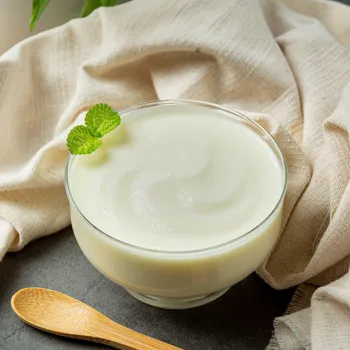Discover the power of probiotics in enhancing your health the Desi way. Uncover 10 key facts for a healthier you!
In the hustle and bustle of modern life, looking after our health often takes a backseat.
But what if a simple addition to your daily diet could significantly boost your well-being? Enter probiotics! These tiny, beneficial bacteria are creating a big buzz, and for good reason.
They play a vital role in gut health, which in turn affects everything from your digestion to your immunity. Let's dive into 10 key facts about probiotics that you should know to make informed choices for a healthier you.
Probiotics: Your Gut's Best Friends
Think of your gut as a bustling city. It's teeming with trillions of microorganisms, both good and bad. Probiotics are the friendly residents that help keep the peace. They are live microorganisms that, when consumed in adequate amounts, confer a health benefit on the host.
Essentially, they help you maintain a healthy balance of gut bacteria, which is essential for overall well-being. These aren’t some fancy imported item, many of our traditional foods, the kind passed down through generations, naturally contain these amazing helpers!
So, next time you think about health fads, remember the wisdom of your grandmother’s kitchen!
Not All Probiotics Are Created Equal
Just like not all medicines are the same, different strains of probiotics have different effects. Lactobacillus and Bifidobacterium are two of the most common and well-researched genera. However, within each genus, there are numerous species and strains, each with its unique properties.
For example, Lactobacillus rhamnosus GG is known for its ability to support immune function, while Bifidobacterium lactis may help improve digestion. Therefore, when choosing a probiotic supplement or food, it's crucial to look for specific strains that address your individual health needs.
Read the label carefully and consult with a doctor or registered dietitian for personalized recommendations.
Probiotics and Digestion: A Match Made in Heaven
One of the primary benefits of probiotics is their ability to improve digestion. They help break down food, absorb nutrients, and prevent digestive issues like bloating, gas, and constipation.
By promoting a healthy gut environment, probiotics can ease the symptoms of Irritable Bowel Syndrome (IBS) and other digestive disorders. If you often experience tummy troubles, incorporating probiotic-rich foods or supplements into your daily routine could make a significant difference.
Remember, a happy gut leads to a happy you! These micro-organisms work hard in your body.
Boosting Immunity, the Probiotic Way
Did you know that a significant portion of your immune system resides in your gut? Probiotics play a crucial role in supporting immune function by strengthening the gut barrier and stimulating the production of immune cells.
They can help protect you from harmful bacteria and viruses, reducing your risk of infections. Studies have shown that probiotics can shorten the duration and severity of common colds. So, if you're looking for a natural way to bolster your immunity, consider adding probiotics to your diet.
Probiotics in Traditional Indian Foods: A Culinary Treasure
You don't need to rely solely on supplements to get your daily dose of probiotics. Many traditional Indian foods are naturally rich in these beneficial bacteria. Yoghurt, especially homemade curd, is a fantastic source. This is because it is made using naturally occurring probiotics.

The fermentation process itself is the natural probiotic. Fermented foods like idli, dosa, dhokla and kanji also contain probiotics. So, embrace your culinary heritage and enjoy these delicious and healthy options!
Choosing the Right Probiotic Supplement: What to Look For
If you opt for a probiotic supplement, there are a few key factors to consider. Firstly, look for a reputable brand that clearly lists the specific strains and the number of colony-forming units (CFUs) per serving.
The number of CFUs indicates the number of live bacteria in each dose; a higher number doesn't necessarily mean a better product, but a dose of at least 1 billion CFUs is generally recommended.
Secondly, check the expiration date and storage instructions, as probiotics are sensitive to heat and moisture. Finally, be aware that some supplements may contain added sugars or artificial ingredients, so choose a product with minimal additives. A doctor or a registered dietian can help you.
Prebiotics: The Fuel for Probiotics
Think of prebiotics as the food that probiotics need to thrive. Prebiotics are non-digestible fibers that feed the beneficial bacteria in your gut, helping them grow and multiply. Good sources of prebiotics include onions, garlic, bananas, oats, and asparagus.
By consuming both probiotics and prebiotics, you can create a synergistic effect, maximizing the benefits for your gut health. This combination is often referred to as "synbiotics." Essentially, you’re creating a thriving ecosystem in your gut when you combine the benefits.
Probiotics and Mental Well-being: The Gut-Brain Connection
Emerging research suggests a strong link between gut health and mental well-being. The gut and brain are connected through the gut-brain axis, a complex communication network that involves hormones, neurotransmitters, and immune signals.
Probiotics may influence mood, anxiety, and cognitive function by modulating this communication pathway. While more research is needed, early studies have shown that certain strains of probiotics can help reduce symptoms of depression and anxiety.
Potential Side Effects: What to Expect
While probiotics are generally safe for most people, some individuals may experience mild side effects, especially when starting a new supplement. These may include gas, bloating, or changes in bowel habits.
These symptoms are usually temporary and subside within a few days as your body adjusts to the increased bacteria count. If you have any underlying health conditions or are taking medications, it's always a good idea to consult with a doctor before taking probiotics.
Making Probiotics a Part of Your Daily Routine
Incorporating probiotics into your daily routine is easier than you might think. Start by adding probiotic-rich foods like yoghurt, buttermilk, or fermented vegetables to your meals.
If you choose to take a supplement, follow the dosage instructions carefully and take it consistently for optimal results. Remember to combine probiotics with a healthy diet rich in fruits, vegetables, and whole grains to create a balanced and thriving gut environment.
Small changes can make a big difference!
By understanding these 10 key facts about probiotics, you can make informed choices to support your gut health and overall well-being. So, embrace the power of these tiny allies and embark on a journey to a healthier, happier you!
Your body will thank you for it!
AI Generated Content. Glance/InMobi shall have no liability for the content



















